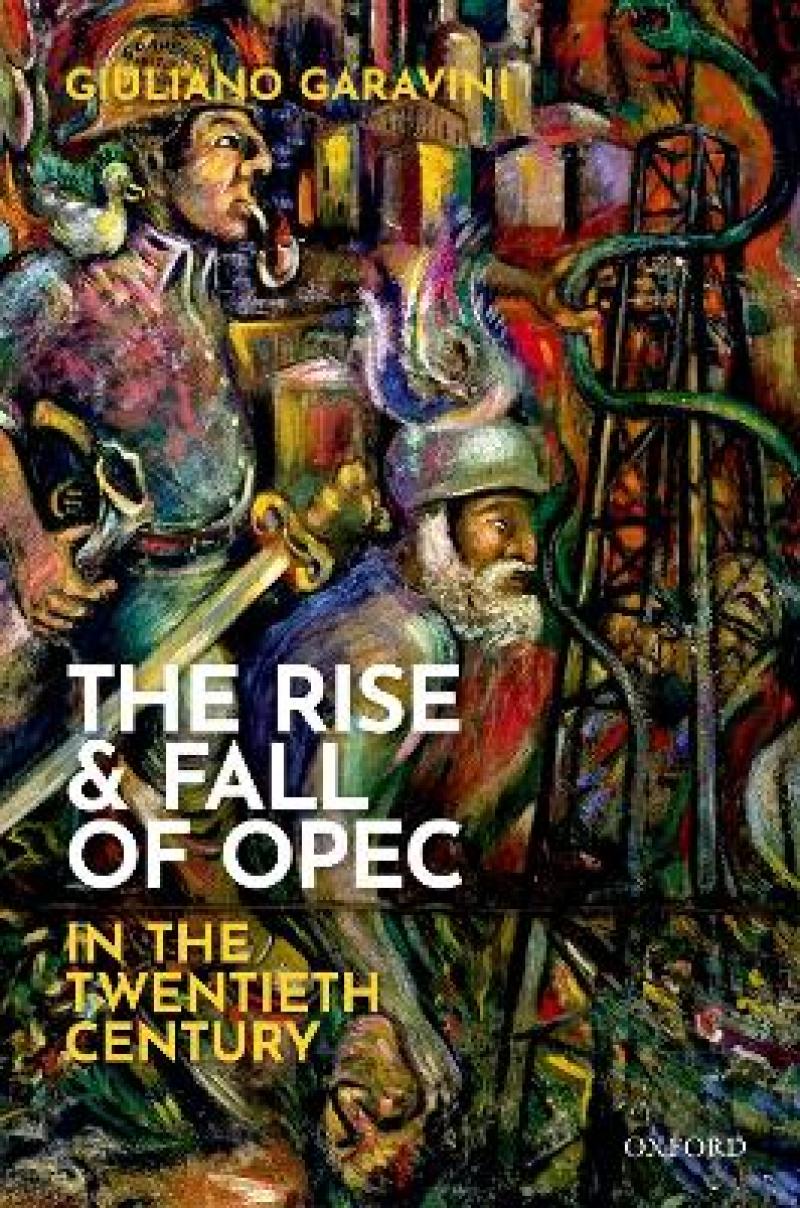The Organization of the Petroleum Exporting Countries (OPEC) is one of the most recognizable acronyms among international organizations. It is mainly associated with the 'oil shock' of 1973 when prices of petroleum quadrupled and industrialized countries and consumers were forced to face the limits of their development model.
This is the first history of OPEC and of its members written by a professional historian. It carries the reader from the formation of the first petrostate in the world, Venezuela in the late 1920s, to the global ascent of petrostates and OPEC during the 1970s, to their crisis in the late-1980s and early- 1990s.
Formed in 1960, OPEC was the first international organization of the Global South. It was perceived as acting as the economic 'spearhead' of the Global South and acquired a role that went far beyond the realm of oil politics. Petrostates such as Venezuela, Nigeria, Algeria, Saudi Arabia, Iraq, and Iran were (and continue to be) key regional actors, and their enduring cooperation, defying wide political and cultural differences and even wars, speaks to the centrality of natural resources in the history of the twentieth century, and to the underlying conflict between producers and consumers of these natural resources.
Les mer
The most comprehensive history of the Organization of the Petroleum Exporting Countries (OPEC) and of its members, this study takes the reader from the formation of the first petrostate in the world, Venezuela, in the late 1920s, to the global ascent of petrostates and OPEC during the 1970s, to their crisis in the late-1980s and early- 1990s.
Les mer
Introduction
1: Fifty-Fifty
2: OPEC
3: Petromodernization
4: The Energy Crisis
5: The Oil Revolution
6: Uneasy Dialogue
7: The Failed Cartel
Epilogue: The Crisis of the Petrostate
This point, however, only underscores the richness of Garavini's book; it delivers even more than it claims to offer. Garavini does not deny that oil and the wealth derived from it have sometimes facilitated destructive decisions by the members of OPEC. But he balances this common narrative of dysfunctional petrostates with a well-researched and -reasoned historical account demonstrating that petrostates have also been unsung champions of redressing global economic inequality and environmental degradation. The Rise and Fall of OPEC is required reading for anyone who wants to understand the global impacts of oil and the role of the Global South in shaping its use during the twentieth century.
Les mer
The first history of OPEC and of its members written by a professional historian
Offers surprising insights into the way of thinking of the ruling elites in petrostates
Links the history of petroluem with other key issues of 20th century history such as decolonization, human rights, and climate change
Extensively employs the OPEC archives to tell the story from the perspective of one of the world most powerful international economic organizations
Les mer
Giuliano Garavini teaches International History at Roma Tre University in Rome. His main research interests include European integration, decolonization, and global struggles over natural resources. He has taught classes at various universities and institutions, including the Graduate Institute in Geneva, the European University Institute in Florence, and NYU Abu Dhabi. He has published on the interconnection between European integration and decolonization
(After Empires, 2012), and on the global history of petroleum and of energy, in particular on the origins and significance of the 1973 'oil shock' (Oil Shock: The 1973 Crisis and its Economic Legacy, 2016) and
on the 'counter-shock' in 1986 (Counter-Shock: The Oil Counter-Revolution of the 1980s, 2018).
Les mer
The first history of OPEC and of its members written by a professional historian
Offers surprising insights into the way of thinking of the ruling elites in petrostates
Links the history of petroluem with other key issues of 20th century history such as decolonization, human rights, and climate change
Extensively employs the OPEC archives to tell the story from the perspective of one of the world most powerful international economic organizations
Les mer
Produktdetaljer
ISBN
9780198832836
Publisert
2019
Utgiver
Vendor
Oxford University Press
Vekt
1 gr
Høyde
242 mm
Bredde
164 mm
Dybde
28 mm
Aldersnivå
P, 06
Språk
Product language
Engelsk
Format
Product format
Innbundet
Antall sider
436
Forfatter
